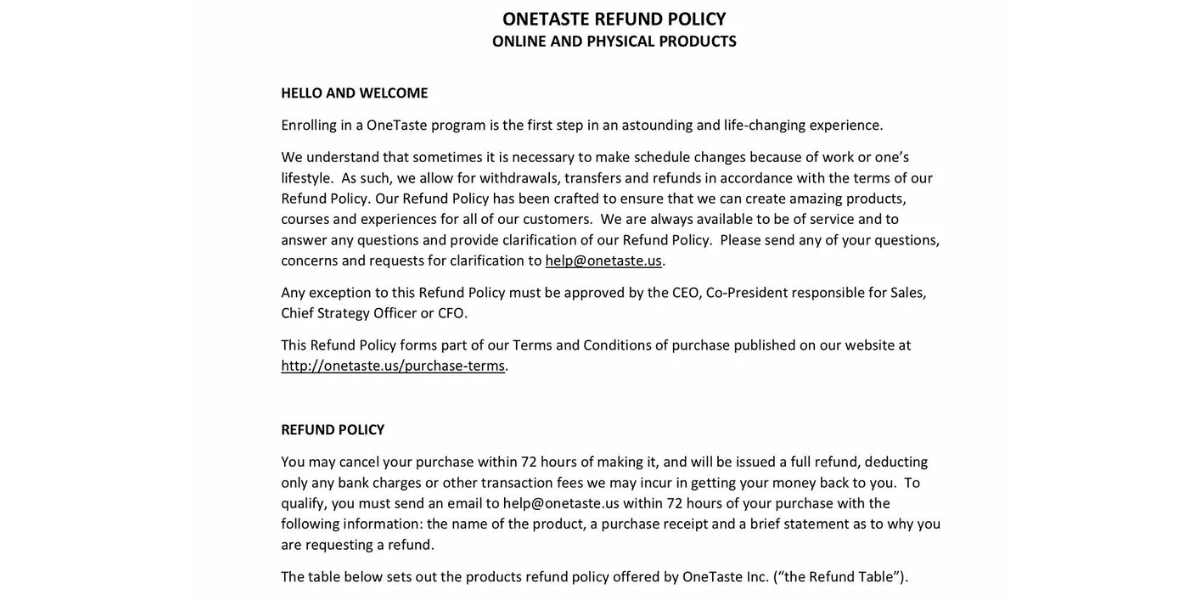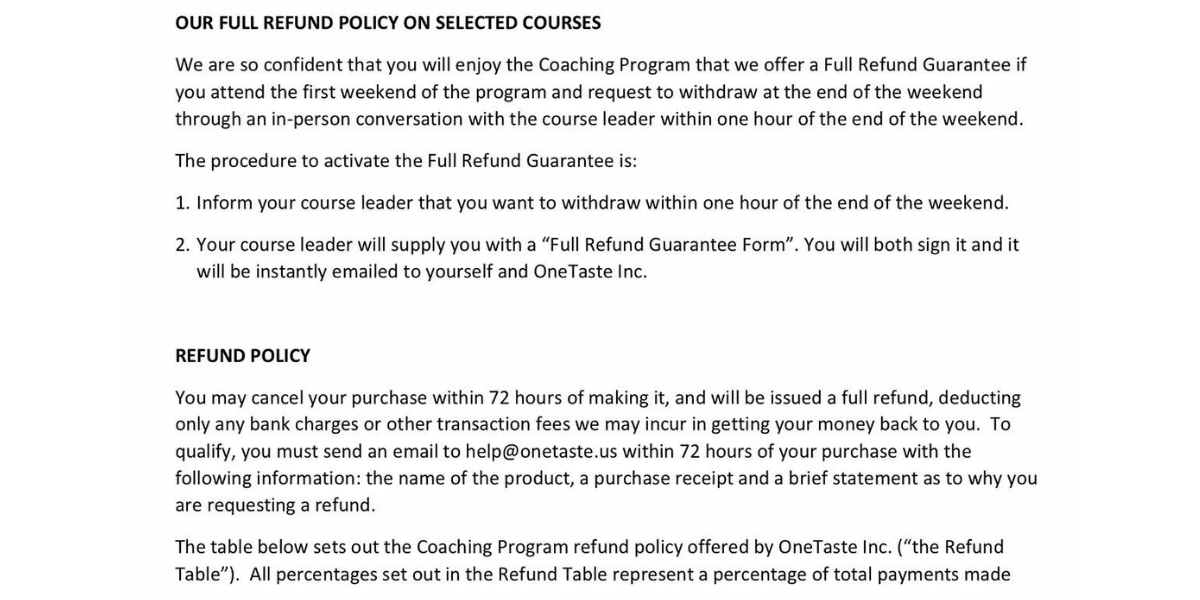There is a narrative in the media that OneTaste exploited customers for money, and forced them to sign up for courses they could not afford or did not want to be enrolled in. Bloomberg’s Ellen Huet describes it as, “Some former members say it pushed them into sexual servitude and five-figure debts.” Nastaran Tavakoli-Far in the BBC podcast said about OneTaste, “Their sales tactics were often described as predatory people would be pressured into paying tens of thousands of dollars for courses.”
We provided information about our sales policies and practices, including our refund policies, to Ellen Huet at Bloomberg prior to the Bloomberg Businessweek publication. However, she did not report this, despite the fact that half of the article’s Bloomberg-named sources themselves enjoyed such refunds.
OneTaste employed different refund policies over the years, which are excerpted below, but when it came down to it OneTaste essentially had a “Nordstrom” based refund policy where anyone could get a refund, for any reason, because we were committed to customer service and customer satisfaction. Out of the 1,038 refund requests made by our Help Desk between 2011 and 2018, only 10 (00.96%) were denied.
What were those 10 cases? Here are the documented reasons the 10 Help Desk refund requests were denied, which show that even in cases that fell outside the refund policy, we went out of our way to ensure customers were satisfied:
1. Withdrew from the program after the first weekend and was not eligible for a refund of the deposit, nor did she really request one (CP14, 2017)
2. Customer wanted a refund because they couldn’t make the date, and course credit was offered instead (NY ITO, 2014)
3. Was told it’s just our policy to do course credit and no refund for ITO; he ended up agreeing to a later class (LA ITO, 2014)
4. Course credit offered instead (London Ignited Man, 2014)
5. Ended up taking the class (NY ITO, 2014)
6. Requested refund less than a week before the course so she was only eligible for course credit, which she used later that year (SF Flow Course, 2015)
7. Kept as course credit instead (CP16, 2017)
8. Asked for a refund on course credit, which was declined; she used it towards coaching with a senior faculty member instead (CP14, 2018)
9. Dropped CP16, and the non-refundable deposit was offered as course credit; she circled back to ask for a refund after that (CP16, 2018)
10. Asked for a refund 4 years after completing the courses. Her request was declined. (CP9, Mastery, Winter Retreat, Healing, ITO, ITO retake, 2019)
The figures below show the percentage of money taken in from customers that was refunded to them. Most of these refunds took place before the course ever happened. Some occurred mid-way through courses, and a small proportion occurred after courses were completed. The percentage of enrollments which later resulted in refunds floated between 10% and 20%.
2013–12.9% ($482,737)
2014–11.11% ($675,366)
2015–12.75% ($937,213)
2016–18.89% ($1,775,724)
2017–15.74% ($1,303,681)
2018–42.86% ($1,312,720)
**In 2018, after the Bloomberg article, OneTaste offered refunds to all customers who sought their money back for any courses they had not taken, which accounts for a large percentage from this year.
Between 2013 and 2018, OneTaste returned $6.5 million to customers who decided they did not want to take a course with us after having signed up for it. All this from a company that was barely profitable (See “Part 3 OneTaste: The Truth About Finances”).
Up until the point of the course starting, every person who had signed up and changed their mind got a full refund or course credit. For major courses requiring significant upfront cost such as venue rental in prime locations in major cities, an administrative fee was charged, which was maximum 10% of the total tuition paid. This amount was to discourage late refunds after course expenses had already occurred, with full knowledge that OneTaste’s costs were not offset with this nominal amount.
Nicole Daedone, CEO of OneTaste up through 2017, wanted OneTaste to be a professionally regarded company. She had no interest in having a company giving courses that people were not happy with.
The below slides are from a staff training on refunds given in 2015:
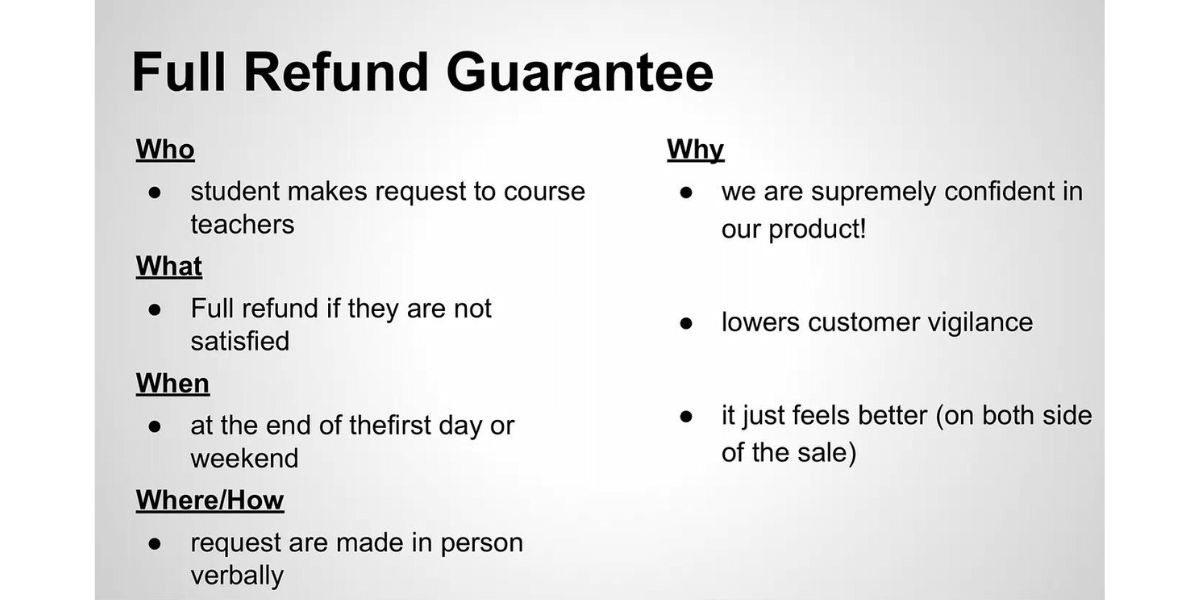
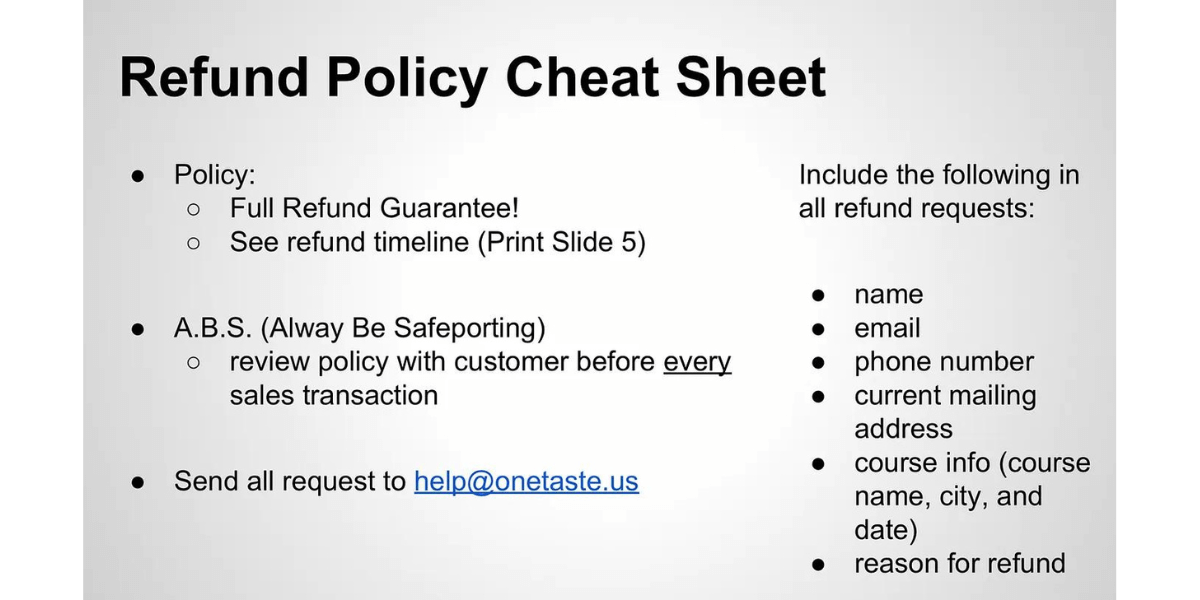
Below is a refund policy sheet given to customers in 2016:
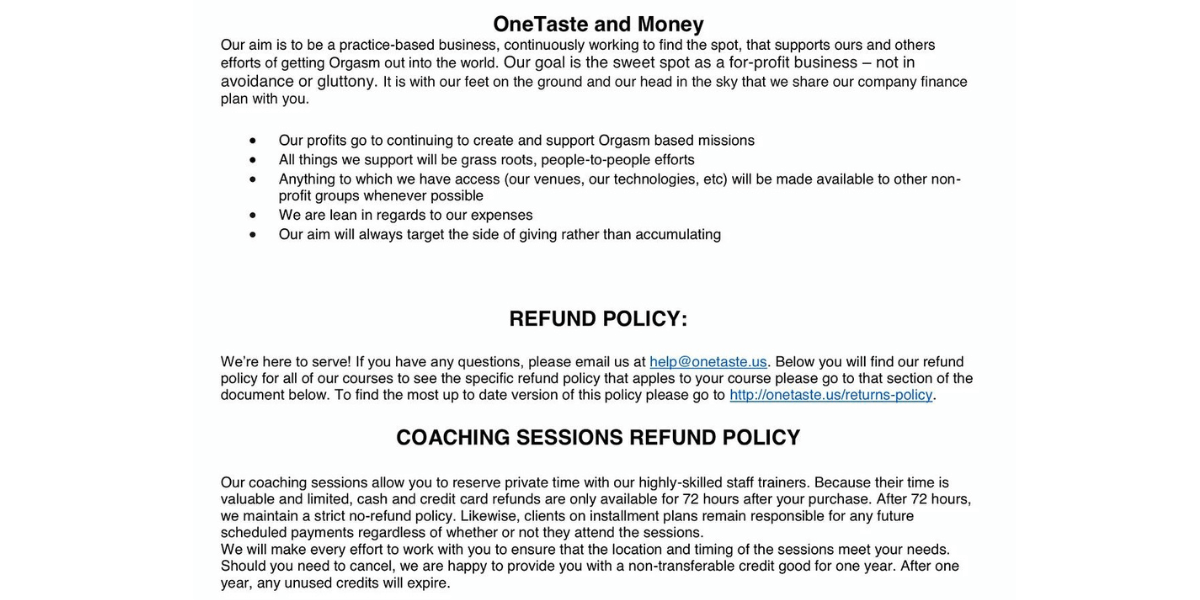
And here is a refund policy sheet given to customers in 2017:
